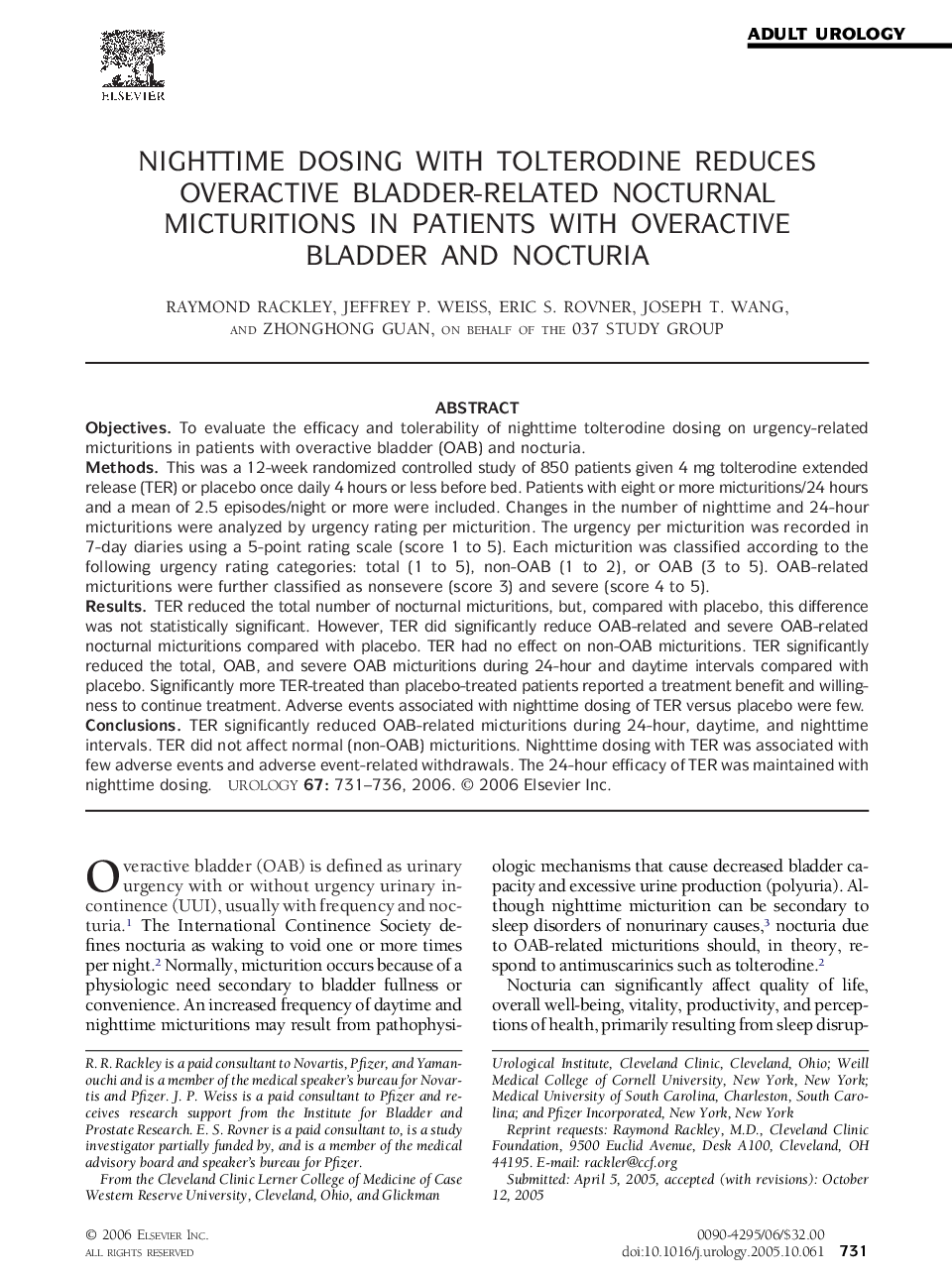| Article ID | Journal | Published Year | Pages | File Type |
|---|---|---|---|---|
| 3906917 | Urology | 2006 | 6 Pages |
ObjectivesTo evaluate the efficacy and tolerability of nighttime tolterodine dosing on urgency-related micturitions in patients with overactive bladder (OAB) and nocturia.MethodsThis was a 12-week randomized controlled study of 850 patients given 4 mg tolterodine extended release (TER) or placebo once daily 4 hours or less before bed. Patients with eight or more micturitions/24 hours and a mean of 2.5 episodes/night or more were included. Changes in the number of nighttime and 24-hour micturitions were analyzed by urgency rating per micturition. The urgency per micturition was recorded in 7-day diaries using a 5-point rating scale (score 1 to 5). Each micturition was classified according to the following urgency rating categories: total (1 to 5), non-OAB (1 to 2), or OAB (3 to 5). OAB-related micturitions were further classified as nonsevere (score 3) and severe (score 4 to 5).ResultsTER reduced the total number of nocturnal micturitions, but, compared with placebo, this difference was not statistically significant. However, TER did significantly reduce OAB-related and severe OAB-related nocturnal micturitions compared with placebo. TER had no effect on non-OAB micturitions. TER significantly reduced the total, OAB, and severe OAB micturitions during 24-hour and daytime intervals compared with placebo. Significantly more TER-treated than placebo-treated patients reported a treatment benefit and willingness to continue treatment. Adverse events associated with nighttime dosing of TER versus placebo were few.ConclusionsTER significantly reduced OAB-related micturitions during 24-hour, daytime, and nighttime intervals. TER did not affect normal (non-OAB) micturitions. Nighttime dosing with TER was associated with few adverse events and adverse event-related withdrawals. The 24-hour efficacy of TER was maintained with nighttime dosing.
